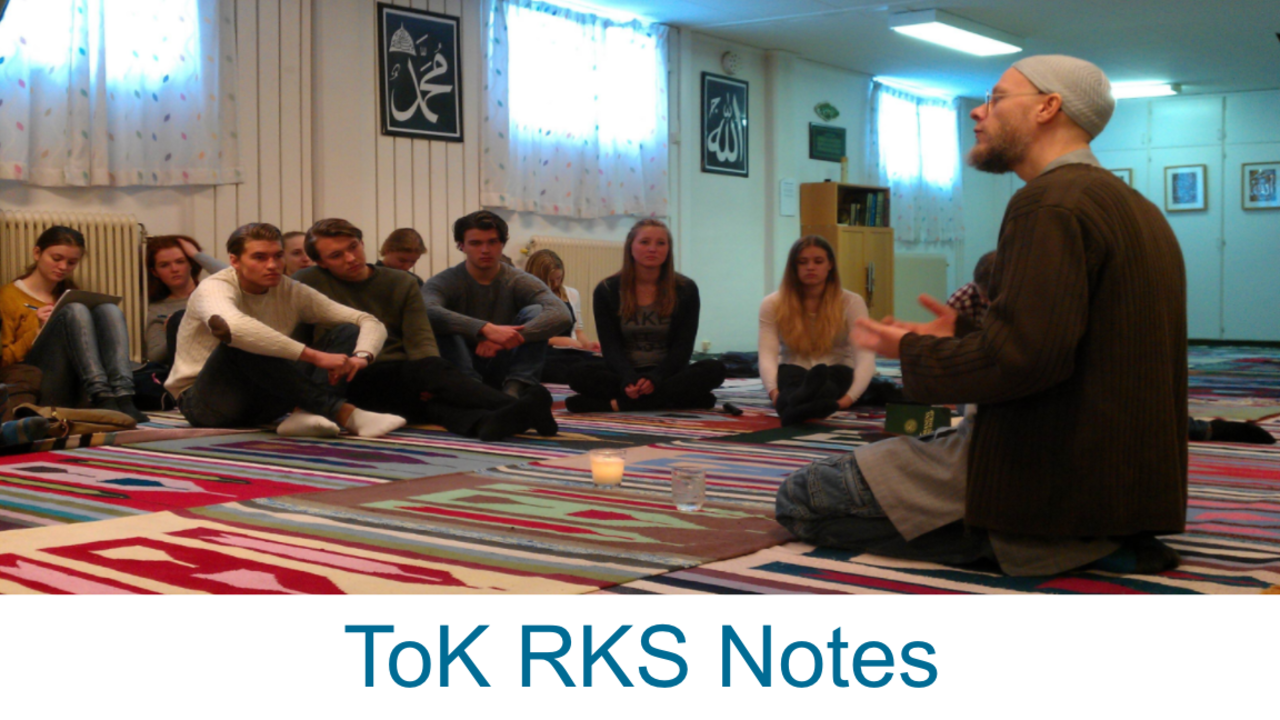Religious Knowledge Systems Notes - Theory of Knowledge

Religious Knowledge Systems Quotes
 "There is only one religion, though there are a hundred versions of it." (George Bernard Shaw)
"There is only one religion, though there are a hundred versions of it." (George Bernard Shaw)- ''I believe in God, only I spell it Nature." (Frank Lloyd Wright)
- "Where knowledge ends, religion begins." (Benjamin Disraeli)
- "When I admire the wonders of a sunset or the beauty of the moon, my soul expands in the worship of the creator." (Mahatma Gandhi)
- "Science without religion is lame, religion without science is blind." (Albert Einstein)
- "My religion is very simple. My religion is kindness." (Dalai Lama)
- "God is a metaphor for that which transcends all levels of intellectual thought. It's as simple as that." (Joseph Campbell)
Religious Knowledge Systems Definitions
 "A specific fundamental set of beliefs and practices generally agreed upon by a number of persons or sects." (Dictionary.com)
"A specific fundamental set of beliefs and practices generally agreed upon by a number of persons or sects." (Dictionary.com)- "A set of beliefs concerning the cause, nature, and purpose of the universe, especially when considered as the creation of a superhuman agency or agencies (God or gods), usually involving devotional and ritual observances, and often containing a moral code governing the conduct of human affairs." (Dictionary.com)
The modern word religion comes from the Latin word religio. To the ancient Romans "Religio was not based on "faith", but on knowledge, including and especially correct practice (Ando). Social harmony came from the gods were owed correct practice (i.e. ritual and sacrifice) from people and in return they received social harmony.
Anthropologists sometimes refer to religion simply as a "cultural system" because they can affect so many ways of how people think and act communities. Religion can act as a strong social glue, holding a community together, explaining the world and governing behaviour without the requirement of additional justification. “Worldwide, more than eight-in-ten people identify with a religious group,” while others (roughly 1.1 billion) don't (Pew). Religions play a strong role in communities. This positive effect can be evidenced by the words of the Dalai Lama, "My religion is very simple. My religion is kindness."
Insights from religion
 Religions help people learn all sorts of insights, the dominant of these being moral teachings. However, religions also serve as:
Religions help people learn all sorts of insights, the dominant of these being moral teachings. However, religions also serve as:
- A way for believers pursue a different kind of self-knowledge --getting in touch with insights (i.e. often from a combination of faith, emotion and intuition) which they might not have accessed otherwise. This could be called spiritual growth or enlightenment.
- A historical source --explaining for example how the world was formed.
-
A code of culture for the community. In Japan, people follow religious rituals during ceremonies for births, weddings and funerals and many will also visit a shrine or temple at the New Year and participates in local festivals (matsuri), most of which have a religious significance (Japan-guide.com).
-
A source of insight into the sacred and divine.











